B.H. Piers and Golden Anchor’s attorney’s letter details stance

JUN 23, 2024
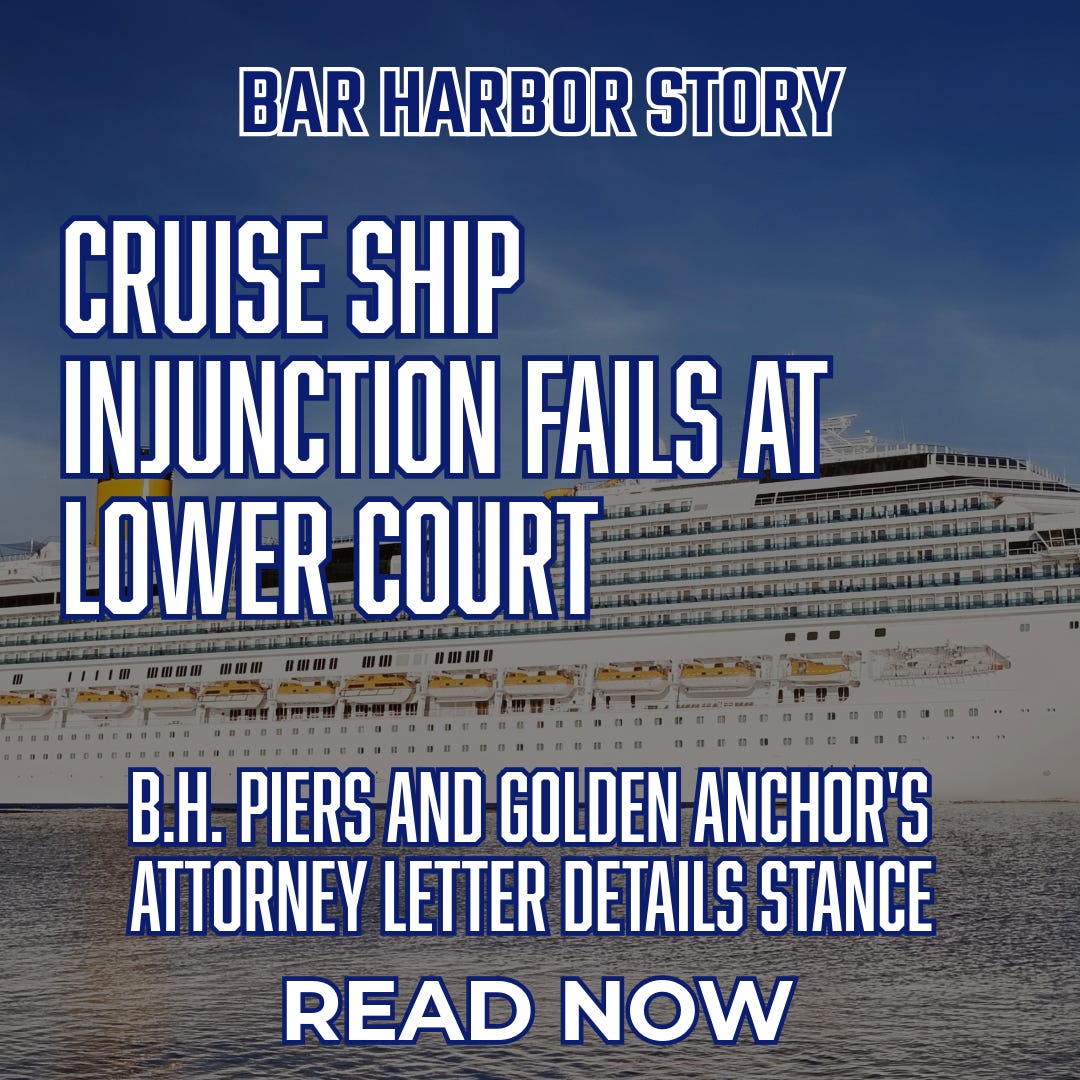
BANGOR—The quest for an injunction that would stop the town of Bar Harbor from enforcing citizen-approved cruise ship disembarkation rules failed at the U.S. District Court level Friday after U.S. District Judge Lance Walker denied the request.
On Tuesday, the Bar Harbor Town Council unanimously approved the Cruise Ship Disembarkation Ordinance’s rules. The ordinance will go into effect in 30 days and limits the amount of cruise ship disembarkations to 1,000 a day. This ordinance was approved by voters in November 2022.
The Association to Preserve and Protect Local Livelihoods, businesses that deal with disembarkations, and the Penobscot Bay and River Pilots Association had initially requested the injunction from the First Circuit of Appeals, where the parties are appealing Walker’s February 29 decision upholding most of the ordinance except for the use of “persons” instead of “passengers.” Using “persons” would restrict seafarers such as crew.
In early May, the parties had asked for an injunction from the appeals court. It was denied. They went back to the district court, as suggested, on May 30.
Now that it has been denied at the lower court level, that upper appeals court can hear the injunction request if the parties wish to do so according to federal appellate procedure rules.
One source indicated that they plan to refile the injunction request with the First Circuit of Appeals “as fast as they can.”
In his eight-page order, Walker wrote, “As for likelihood of success, Plaintiffs argue that I missed the mark when I concluded that the scope of the preemptive impact of 33 C.F.R. § 105.237, which assures shore access for seafarers, is limited to prohibiting Bar Harbor from applying the term “persons” in a way that prevents seafarer shore access.
“They contend that the ordinary result of federal preemption is total abnegation of any state law or regulation when preemption carves out part of an expansive term like ‘persons,’” Walker wrote. “But, as Plaintiffs concede, the use of an expansive term like ’persons’ conveys a meaning that encompasses a long list of entities including both passengers and crew. (‘“Persons” certainly does not mean anything less than passengers, seafarers, and all other humans disembarking from cruise ships into Bar Harbor.’).
“The Federal Seafarer Shore Access Regulation effectively draws a line through only one of the words on the list implied by the term ‘persons,’ not the others. Thus, the term ‘persons’ still includes a list of readily ascertainable entities who remain subject to the Ordinance.”
Walker also didn’t agree with plaintiffs that the the ordinance violates the Commerce Clause in the U.S. Constitution.
“Its object is to protect a small harbor community against the localized negative impacts of outsized cruise tourism,” he wrote.
Also on Tuesday, attorney Andrew Hamilton (Eaton Peabody) on behalf of B.H. Piers LLC and Golden Anchor LC sent a letter to the Council concerning the Disembarkation Ordinance (aka Cruise Ship Ordinance) passed June 18.
In it, Hamilton asks for a “confirmation of the Town Council prior commitment to 2024 and 2025 seasons.
“We ask that the town ask whether, in adopting the Disembarkation Ordinance, the Council intends to continue to honor its March 6 commitment to 1,000+(or)- capacity cruise ships with confirmed reservations for 2024 and for cruise ships with 2025 reservations made before March 17, 2022. We ask this question because the Disembarkation Ordinance will take effect 30 days from the date of passage, and it contains no exception for the remainder of the 2024 cruise season or for post-March 17, 2022, reservations for the 2025 cruise season. We ask, therefore, that the Council confirm that Disembarkation Ordinance will not apply to the 2024 cruise season.”
Hamilton also said the Disembarkation Ordinance “is seriously flawed,” and that it wanted to bring two flaws to the town’s immediate attention. The first, he wrote, is section 7.A, which requires pier owners to create a counting method that includes “a means of discounting from the total count (of those disembarking from cruise ships) all crew.”
Hamilton argues that the government can’t delegate authority to set those standards or procedures to a private entity or even the judiciary.
His second discussion point centered around the pier permits and vested rights of the pier owners, who he said have held permits from the town for decades to allow them to construct and use two private piers (Harbor Place and Harborside Piers) “without numeric limitation” to disembark passengers. He cites the town’s land use ordinance as allowing those as nonconforming uses.
“Similar to all property owners, the pier owners cannot be compelled to make an application under a new disembarkation ordinance for the permit that will divest the pier owners of their vested rights,” he wrote.
Therefore, Hamilton wrote, “the town should not plan on the pier owners either (1) abandoning their rights under existing permits and prior law” or complying with what he has characterized as an “unlawful requirement that they establish a counting method.”
LINK TO LEARN MORE
RULING IN FULL
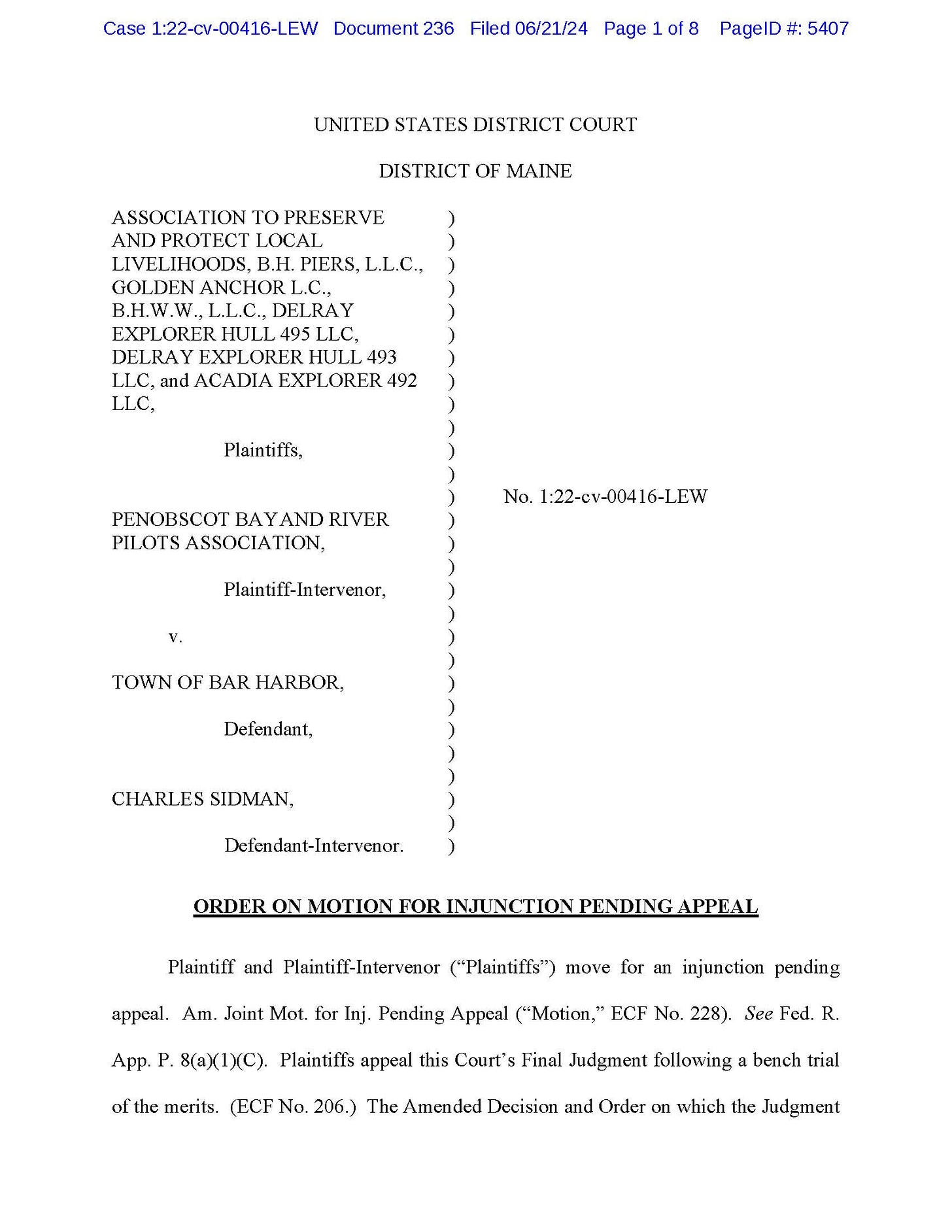
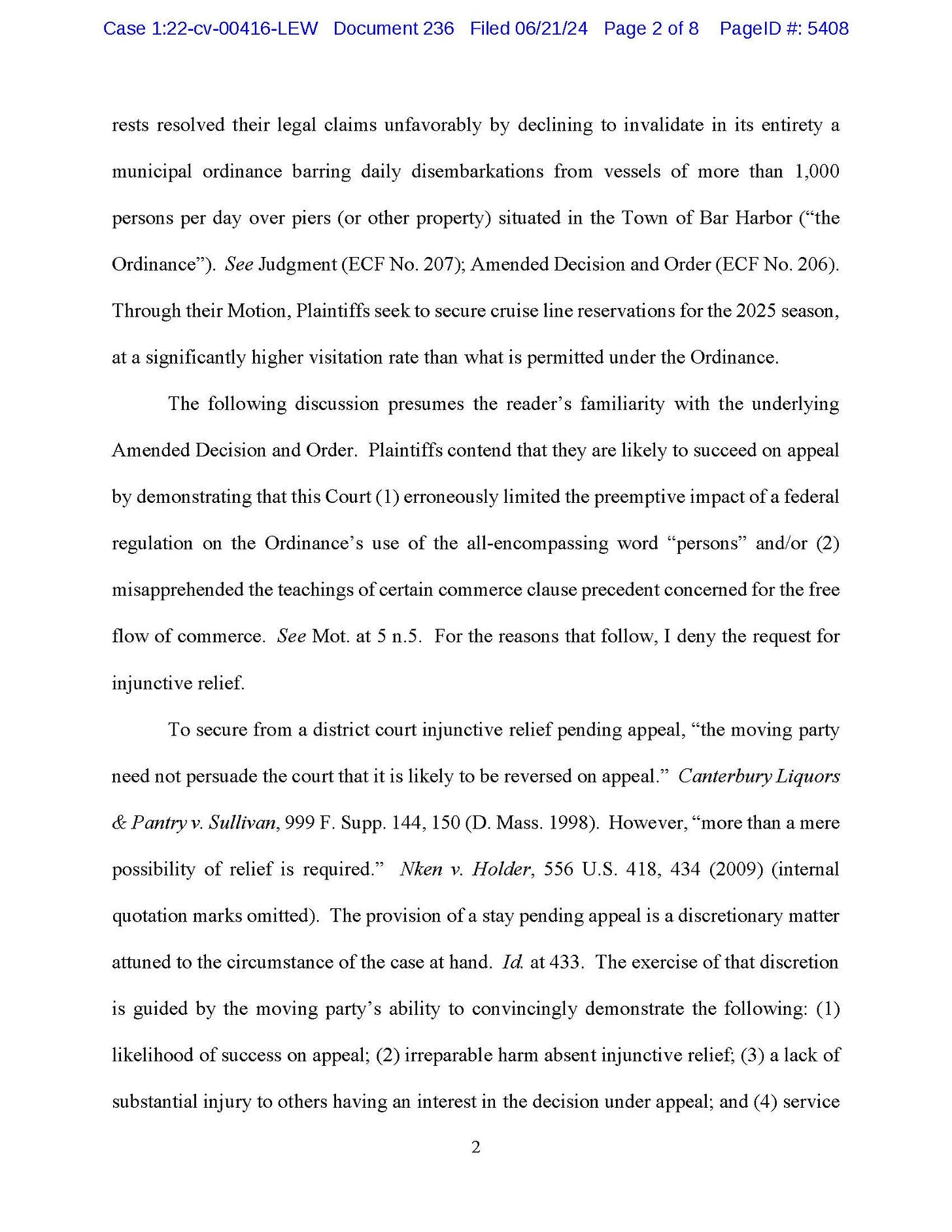
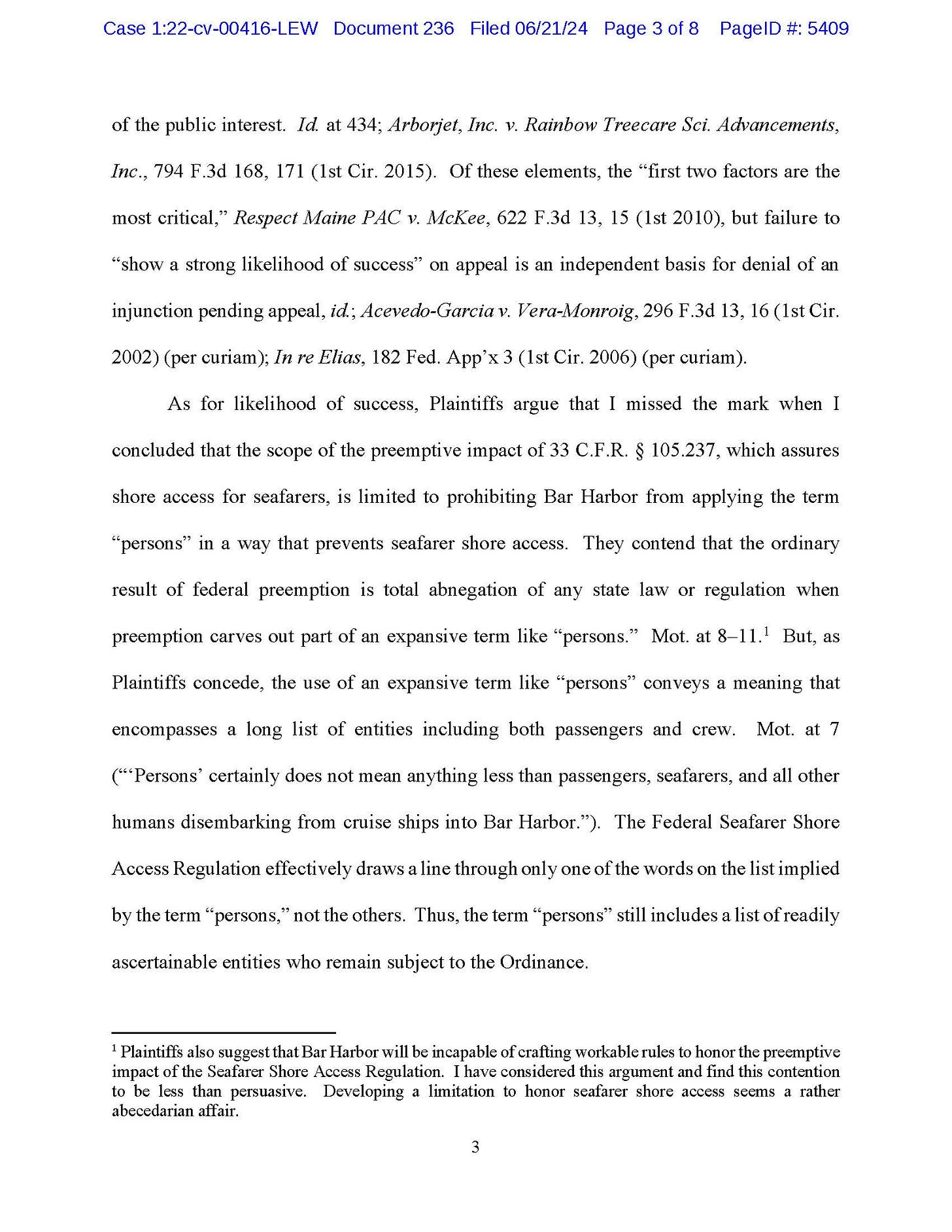
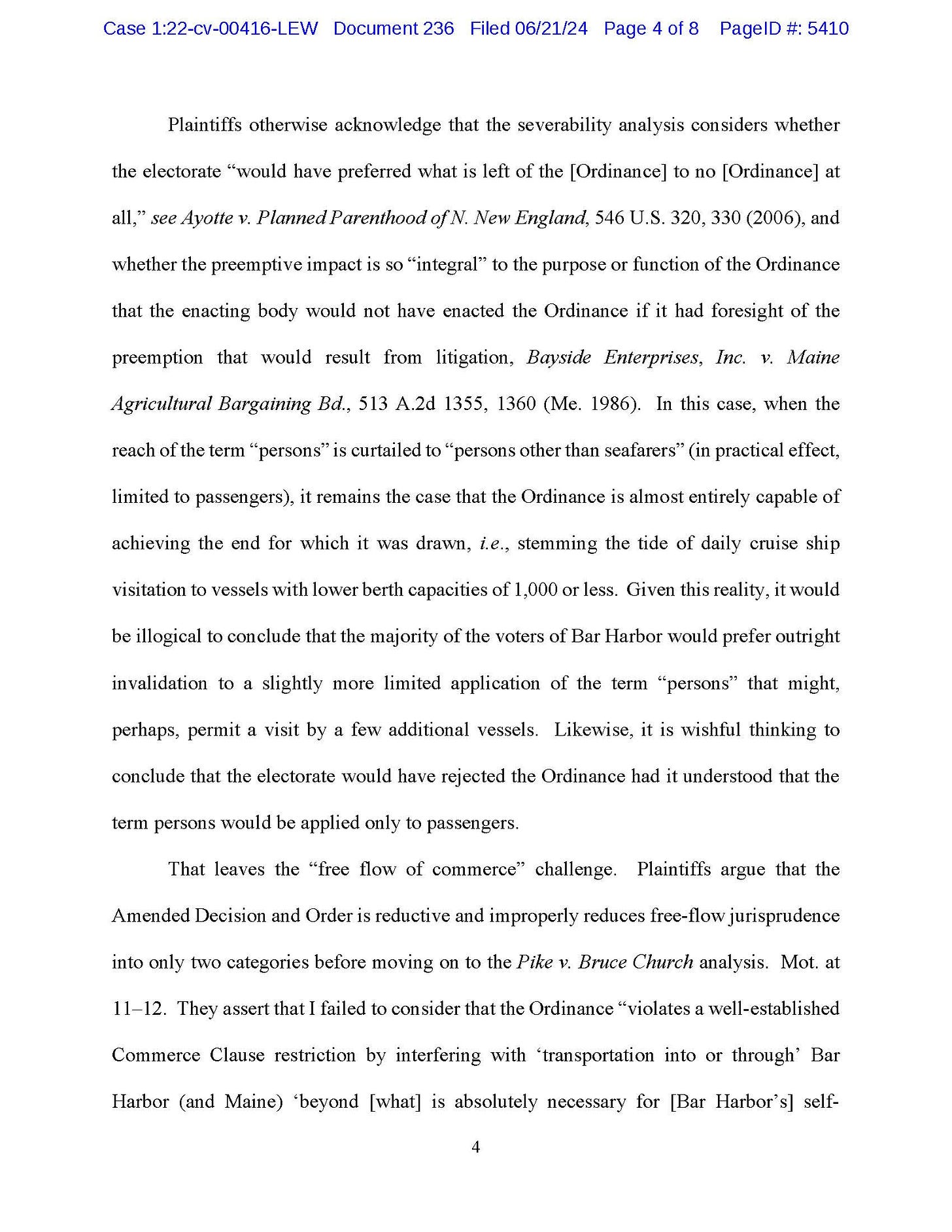
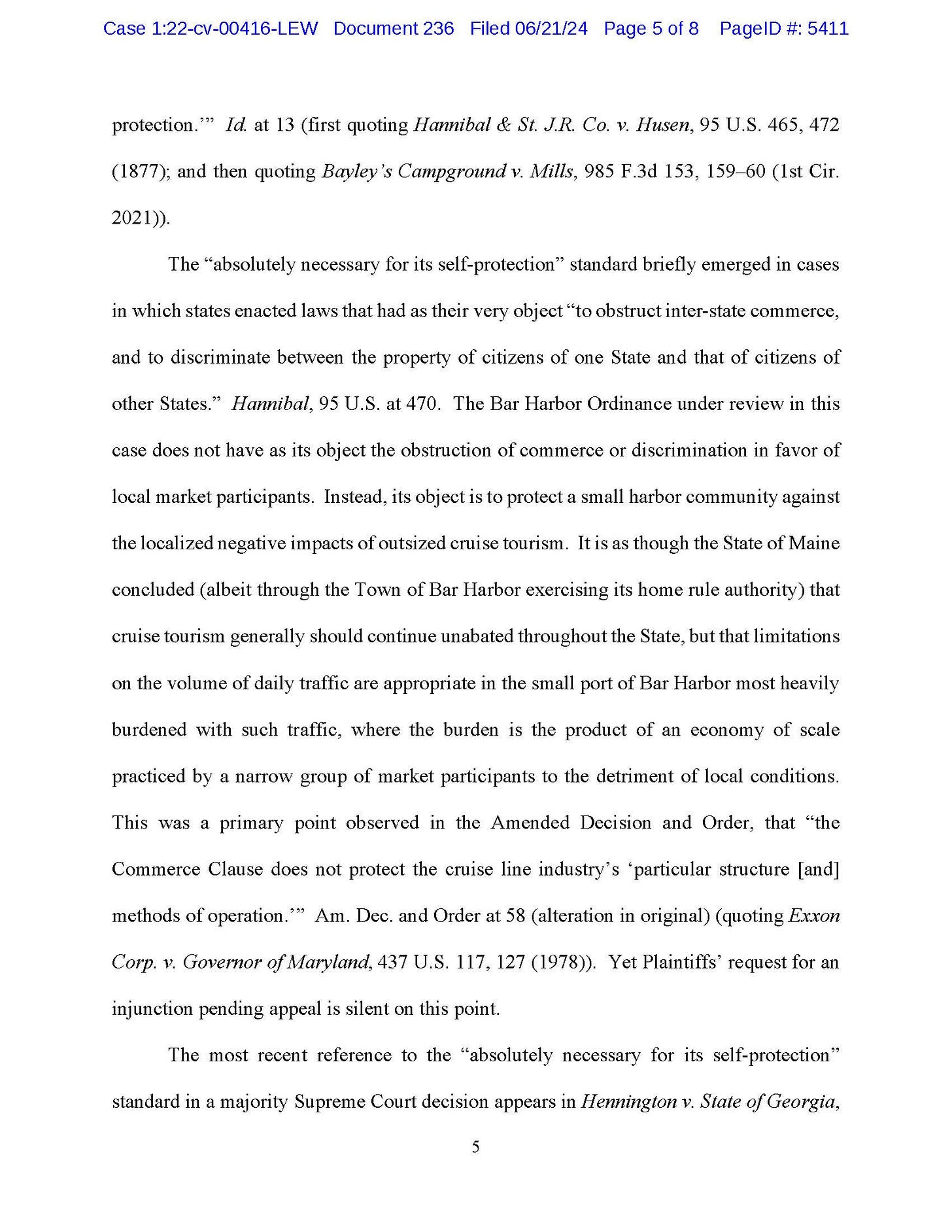
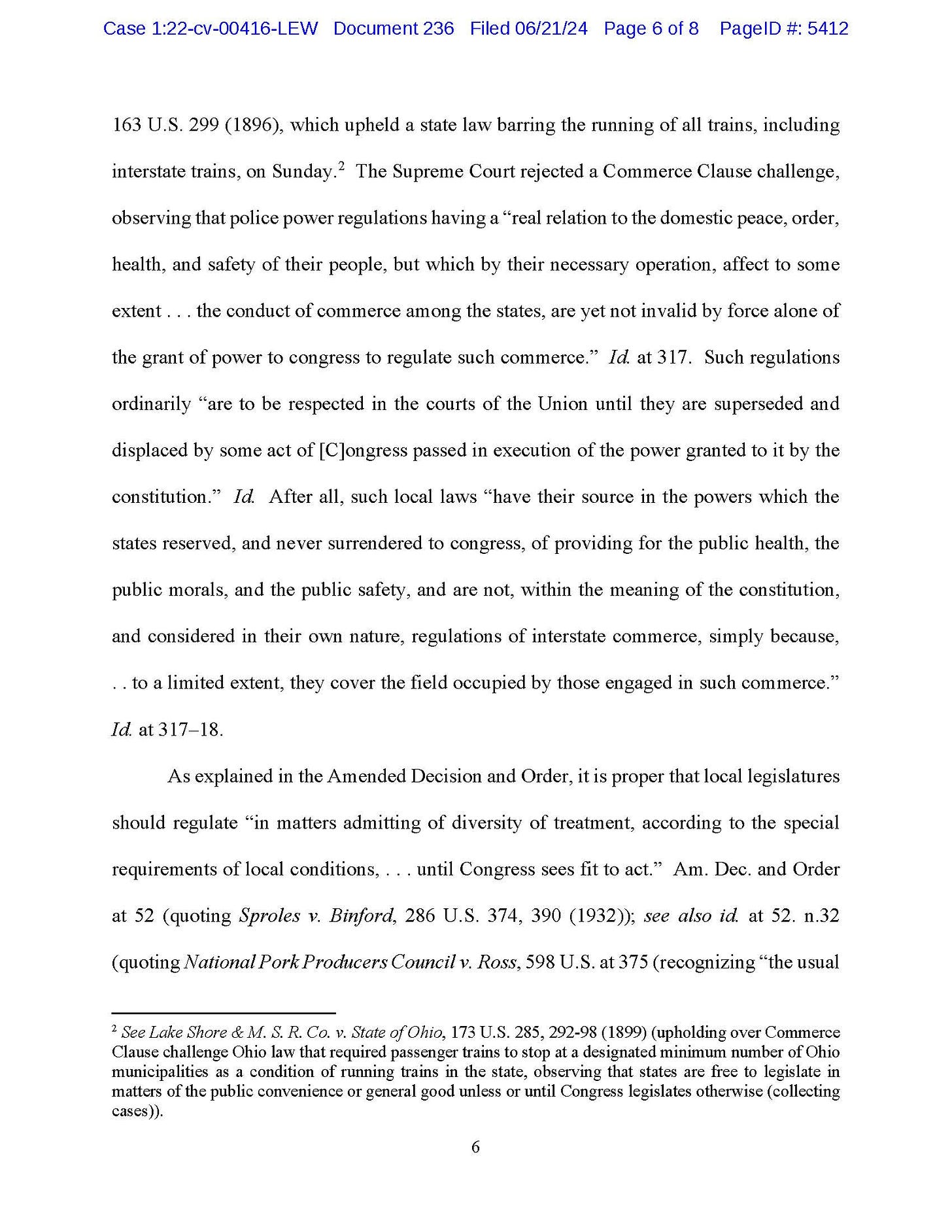
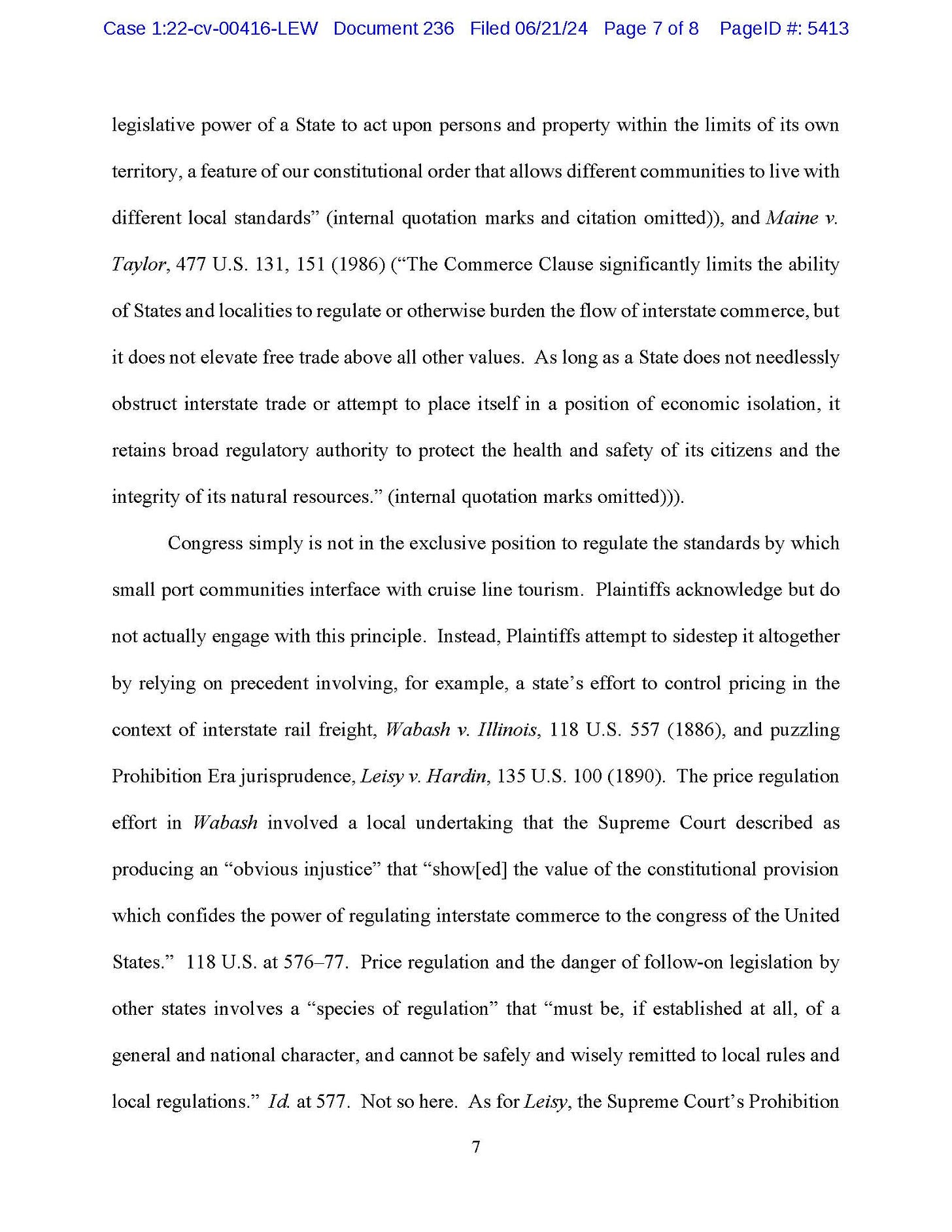
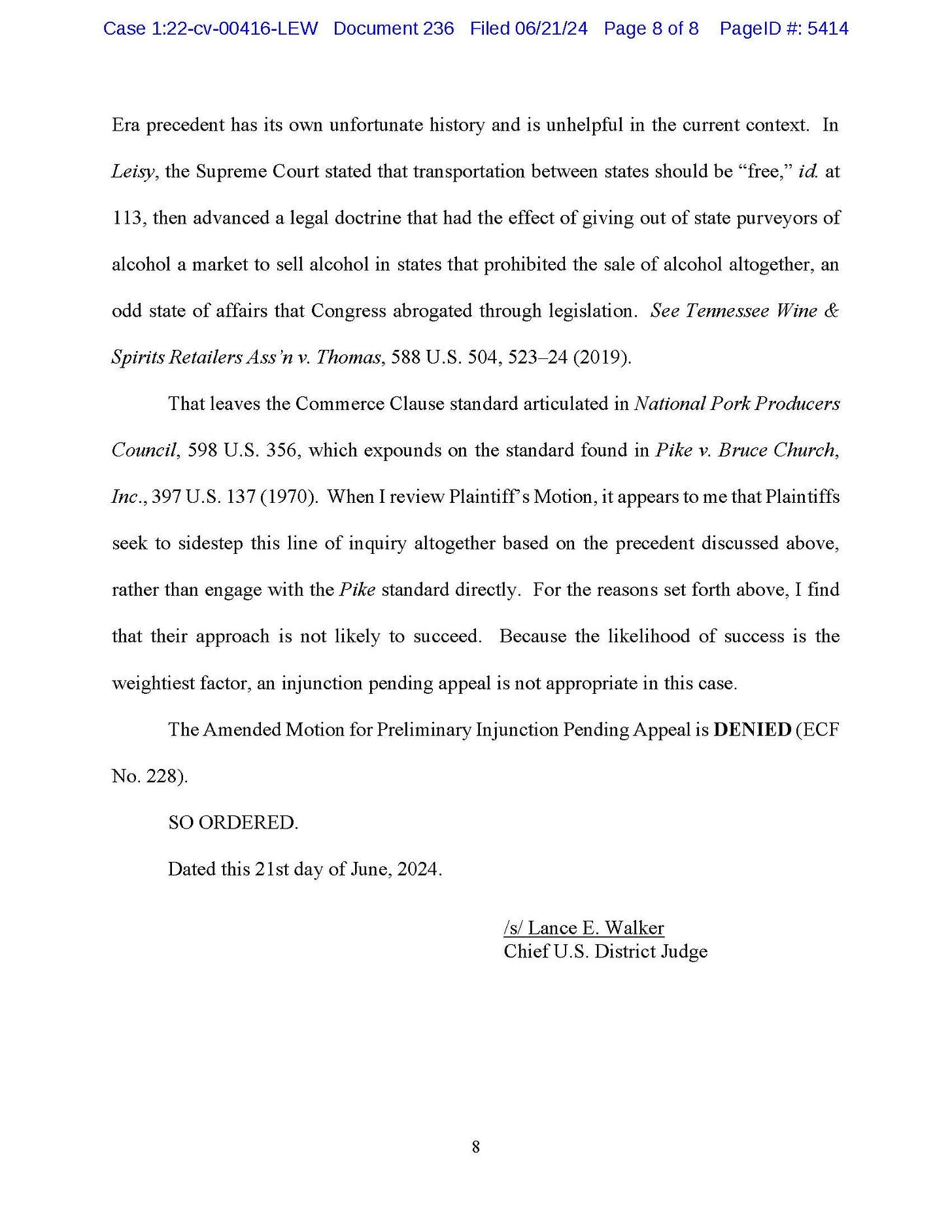
Ecf Ntc (6 21 24) Supp Record On Appeal Transmitted To 1st Circuit
395KB ∙ PDF file
HAMILTON LETTER IN FULL
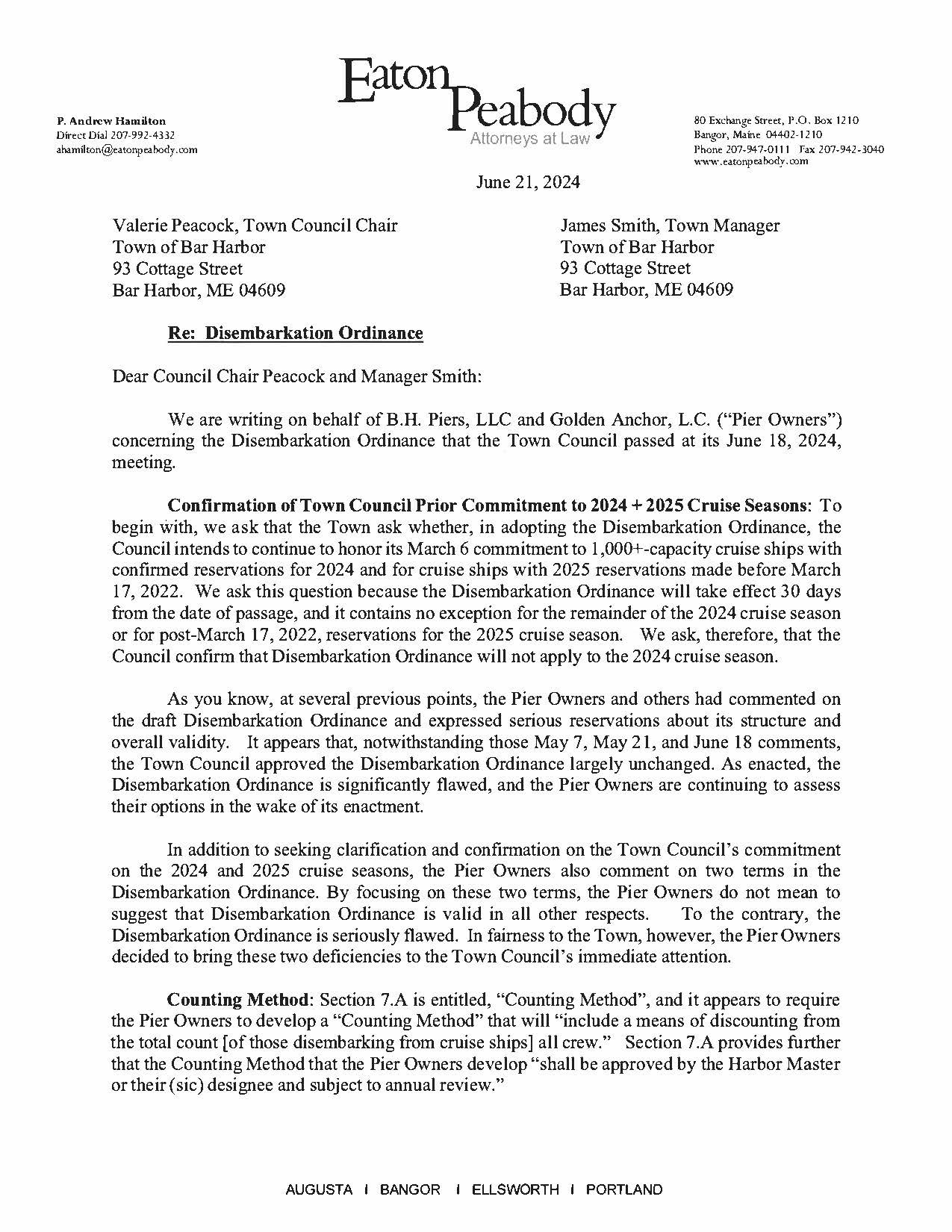
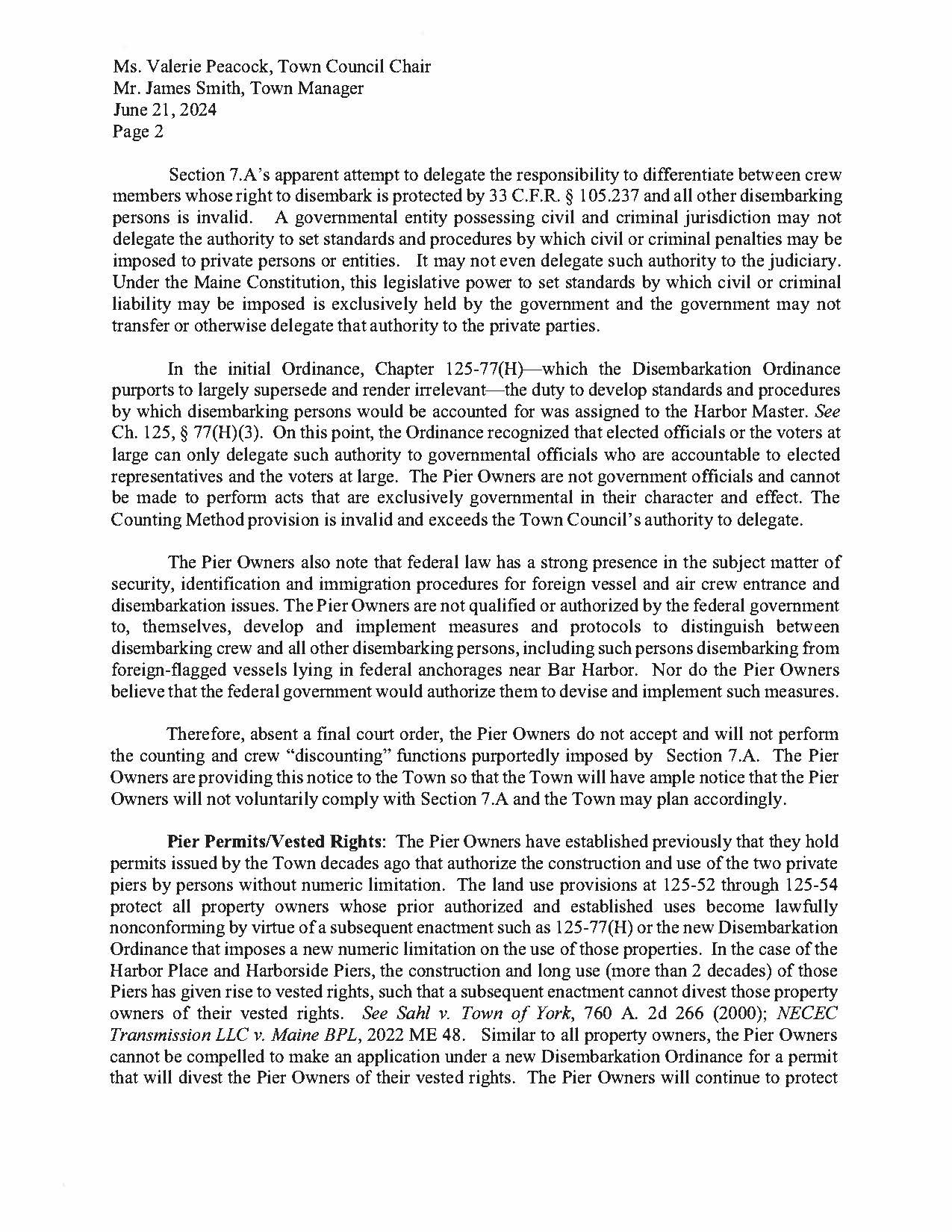
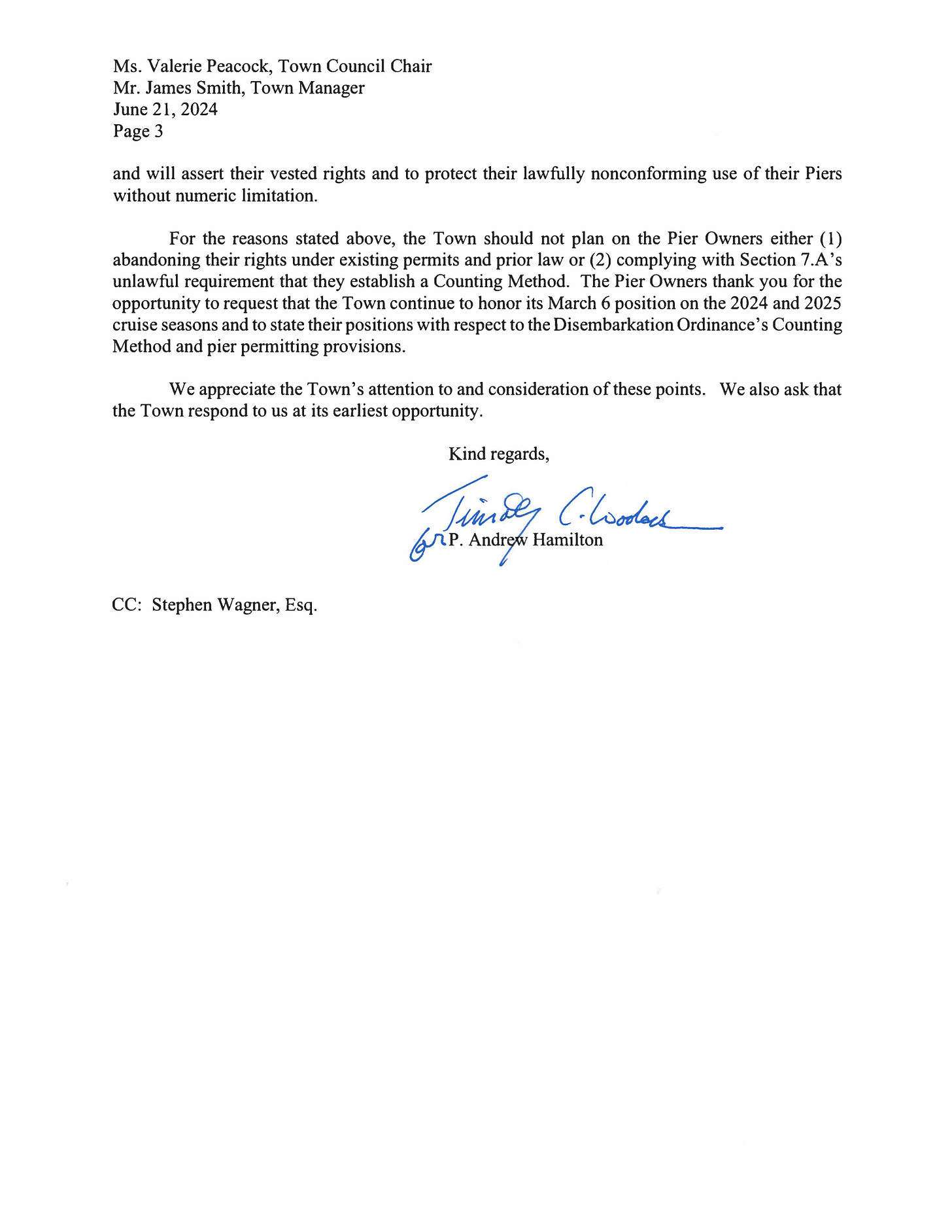
Bar Harbor Story is mostly a self-supported publication. To receive new posts and support our work, please consider becoming a free or paid subscriber. Thank you for being here with us and caring about our community, too!
Thank you for reading Bar Harbor Story . This post is public so feel free to share it.
If you’d like to donate to help support us, you can, but no pressure! Just click here.

